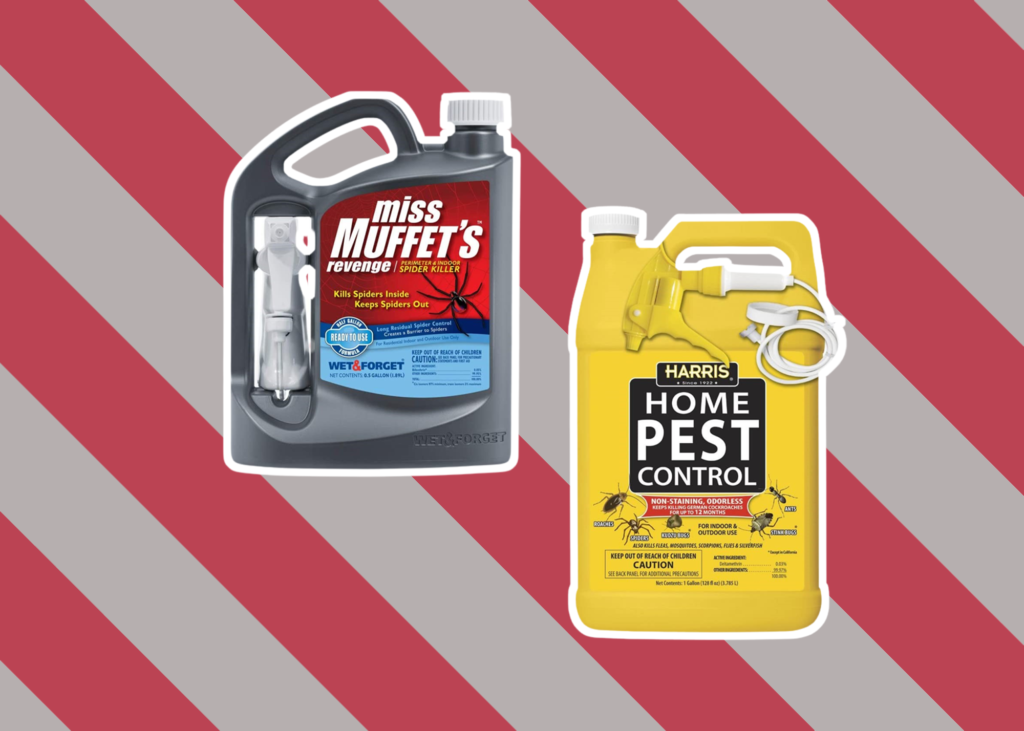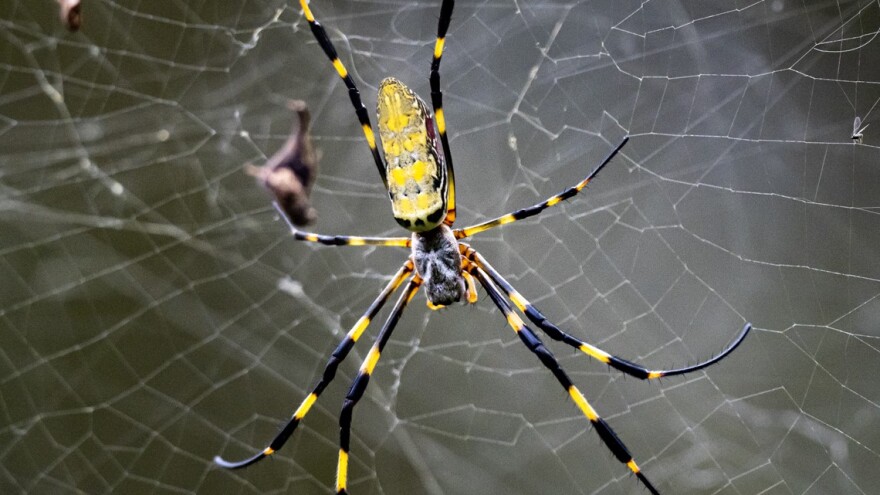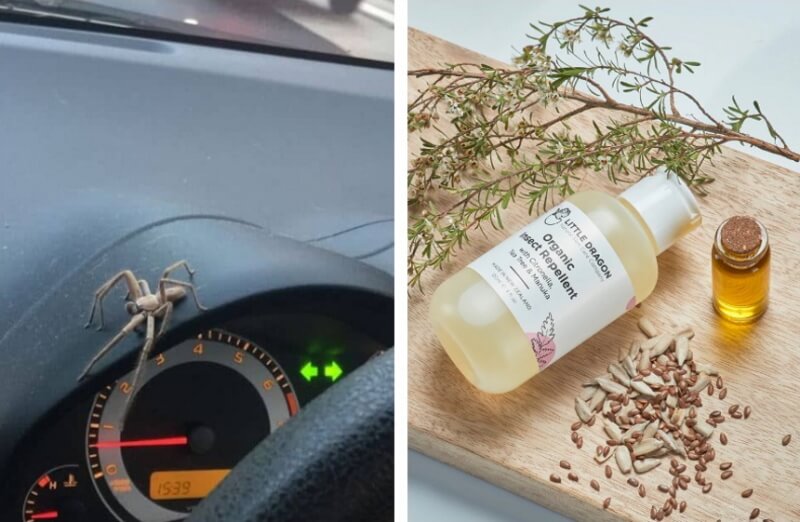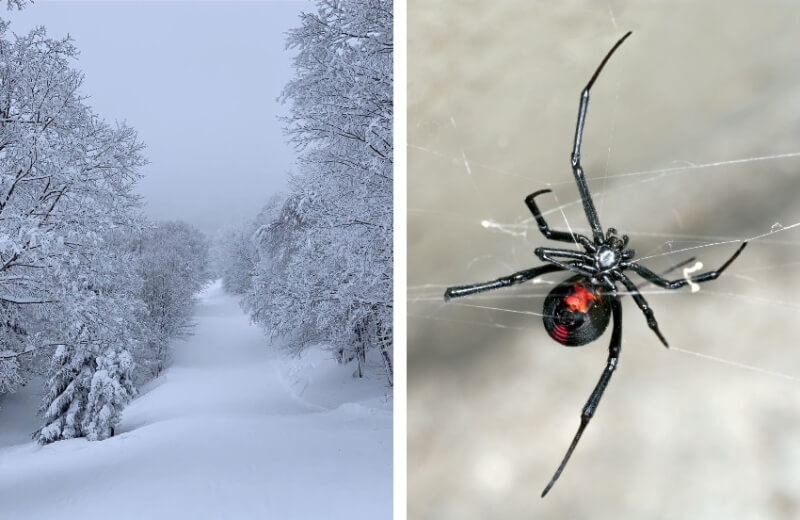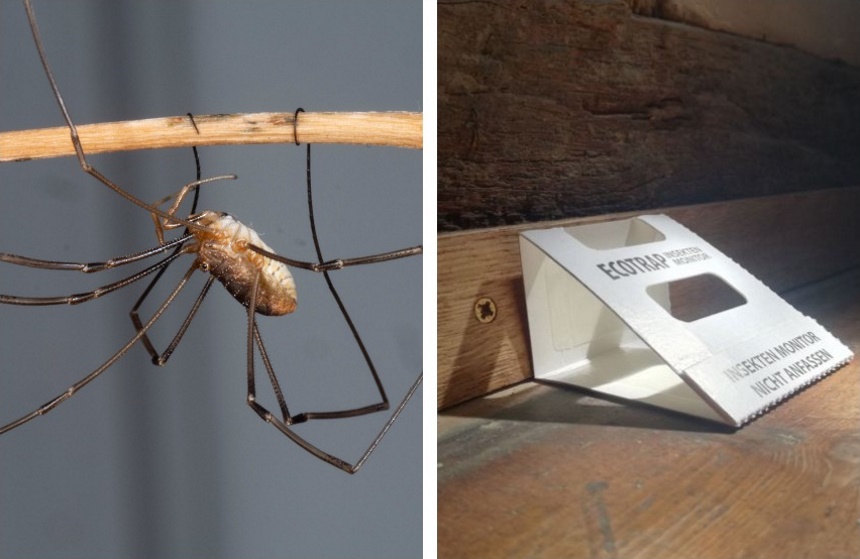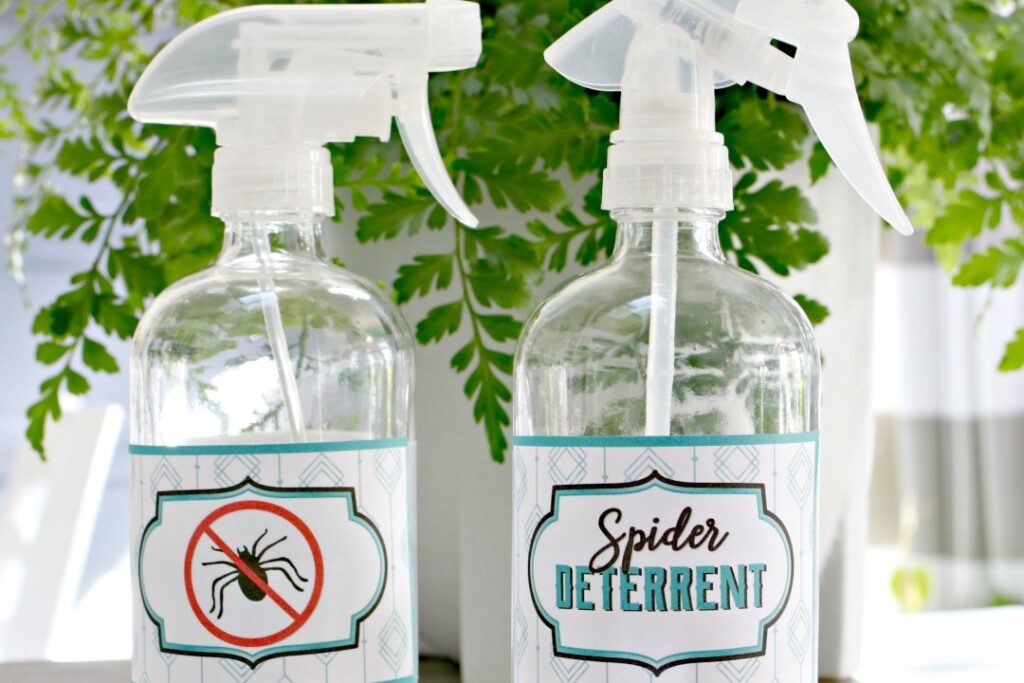

There are many things people are afraid of but one that always tops the list is spiders. Creepy and crawly, it’s one thing to encounter spiders in the wild but another thing altogether to see them in your own home. However, if you can learn what attracts spiders in the house, you have a better chance of keeping these arachnids outside where they belong. Spiders serve an important ecological function so we want to do all we can to protect them. However, if you’ve ever wondered just why are there so many spiders in my house, you’ve come to the right spot. We’ll explain how spiders get inside, what they are looking for, and then offer a few tips to get rid of them.
First, let’s talk about how spiders get inside in the first place. If you’re aware of their entry points, you will be able to cover these places up and hopefully prevent them from coming in.
All houses have gaps you aren’t aware of. And spiders are tiny. Even though you wouldn’t be able to fit through these gaps, spiders and their small arachnid bodies Trusted Source Myth: Spiders are insects | Burke Museum Are spiders insects? No, they’re arachnids, as different from insects as birds are from fish! www.burkemuseum.org definitely can.
Similar to if you are looking for a draft in your home, you can look for gaps between doors or even areas where the foundation has shifted.
Do you keep your windows open to allow a cool breeze through your home? While refreshing, if you don’t have a screen on that window, spiders can easily come through the gap.
Outside vents, such as laundry vents or heater vents, are supposed to have mesh screens on them. Over time, this mesh can wear away or even be knocked off. Through these holes, spiders can definitely come into your home.
Now that we know how spiders are getting into your house, let’s find out what they want to get in.
Spiders eat insects and when it starts to get cold outside, those insects can hibernate. If there is no food source readily available, spiders will start to look elsewhere, including your house.
Yes, you probably have other insects in your house, which can add to the ick factor. While it is nice to have spiders that can catch other pesky insects, you don’t want those spiders to crawl around unaware.
Chances are you will see spiderwebs and dead insects in corners of your house but not actual spiders. If you want to eliminate these unsightly areas, you can try a product such as Web Out Cobweb Eliminator. Simply spray it where there are cobwebs and it will kill any spiders lurking in nearby shadows.
Warm, humid areas are the perfect area for spiders. Basements, especially if they have a furnace in them, will provide what the cold, dry winter outside can’t.
If you can, check your moisture levels in your house and run a dehumidifier to prevent spiders from thinking they’re at the spa.
You might notice more spiders once fall hits. This is because it is starting to get cold out and spiders, just like humans, want to keep warm.
What’s more, once spiders lay eggs, those eggs can’t survive freezing temperatures Trusted Source What Happens To Spiders In The Winter? | Wisconsin Public Radio As the air grows chillier and the days get shorter, there are fewer bugs. So what happens to those spiders? A University of Wisconsin-Green Bay biology professor explains. www.wpr.org . So, spiders want to come inside where they can lay eggs. It may be logical for spiders but sure is creepy for humans.
Spiders need to mate in order to lay eggs and produce offspring. The mating ritual of spiders is complex but if you already have a spider in your home, other spiders will be attracted to it and seek out their potential mate. Basically, if you have one spider in your home you will be sure to have more soon.
No matter how clean you keep your home, there are tons of nooks and crannies for spiders to hide in. Under the bed, in dark corners of kitchen cabinets, or in that hard-to-reach place in your bathroom. These are all great places for spiders to camp out in.
Spiders have a lot of natural predators, so they may think they are safer inside your home than outside exposed to the elements.
This can actually be of benefit to you. If you want to get rid of spiders, the easiest way is to place spider traps. Since spiders naturally want to crawl into dark, safe areas, they will be more likely to enter a trap, thinking it is a place of safety.
If you’re still not sure what causes spiders in a house, simply look around your kitchen. Are there orange peels from breakfast still on the counter? Has the garbage been emptied recently? How many cracker crumbs are under the bed in your child’s room?
Yes, you try your best to wipe up any spills but food is everywhere in a kitchen. If a spider can have unlimited access to food inside a home, why wouldn’t it try to live with you?
Spiders prefer meat sources, such as eggs and sausage, but they are also attracted to the sweet scent of fruit. If you’ve done your best at eliminating food debris in your home, the next step might be to eliminate the spiders, such as with the Spider Control Kit. It includes traps and an aerosol can that will kill spiders and other pesky insects so you can keep living your life.
Ok, now it’s time to go through the many ways to get rid of spiders. There are many ways to do so, and often what works best is a combination approach. You may also have to go in waves to get rid of spiders as they are pretty sneaky and very good at hiding.
If you have a lot of spiders in your home and nothing you do seems to prevent them, then it may be time to lay down some traps. These traps are small and have a cent that will attract spiders. They often include poisoned food to kill the spiders. Other traps will hold the spiders inside so that you can identify them to see if they are poisonous or not.
You may also see a lot of spiders outside and be worried they will come inside. While spiders play an important role in your garden, this list of the best outdoor spider sprays can help prevent them from entering your home.
Another alternative is to use a fogger. This emits a chemical into a room that will then kill any spiders and other unwanted insects. While foggers are safe for humans, you still want to wait a few hours to enter the area again. This list of the best foggers for spiders can give you more information about how they work.
As we mentioned above, spiders are looking for an easy food source. Be sure to clean up after yourself in the kitchen and pay attention to dark areas such as under the sink or near a garbage can.
Children’s bedrooms can be a source of food debris, so either stay on top of cleaning or make it a rule that all eating needs to be done in the kitchen.
Do you have chairs that you move from outside to inside? What about that picnic blanket that you now have folded neatly into the closet? Any time you transport an object from outside to inside, it might just be a carrier vehicle for spiders.
Always perform a quick inspection to see if there are any eight-legged friends attached. Hose off any plastic furniture before moving it inside and always shake out towels and blankets.
Finally, it’s imperative to remove any spider webs, preferably before the end of winter. Inside those webs are usually eggs, which spiders have come inside to lay safely. You may have trapped a spider or two, but if left alone, those webs can be carrying hundreds of baby spiders. Yes, this is incredibly creepy. Use a spray to remove the webs or a high-power vacuum.
Take a day in the fall and another in the winter to go through your whole house. Look for any corners, both high and low. Under stairs and any dark corners are common places to find spiderwebs.
Spiders are important but they belong outside. Nobody wants to think that they’re sharing a bed with a spider and it’s very unnerving to see something crawl under your couch, but then you are no longer able to find it. If you have a lot of spiders in your home, go through and clean all the webs and then set traps for the spiders. You can then start preventing them from coming in by closing any gaps in your windows or vents and cleaning your house so there is no extra food lying around. The more you can understand what attracts spiders in the house, the better you can eliminate these crawly arachnids.
